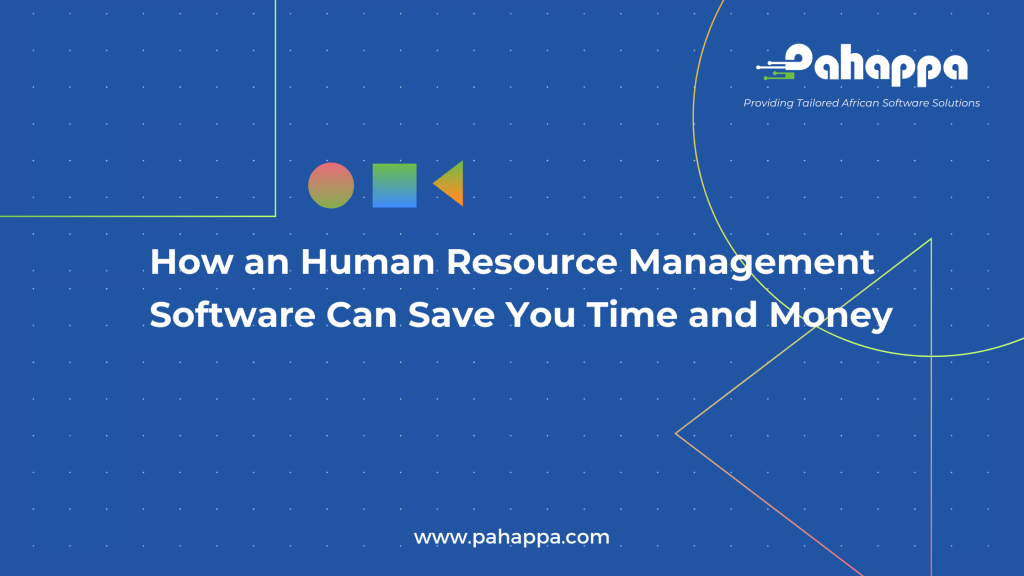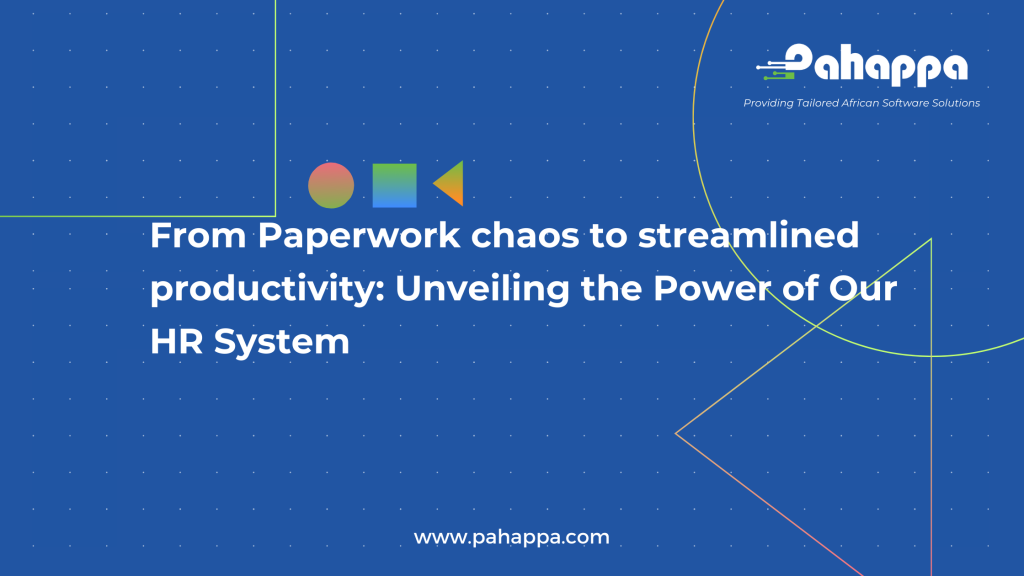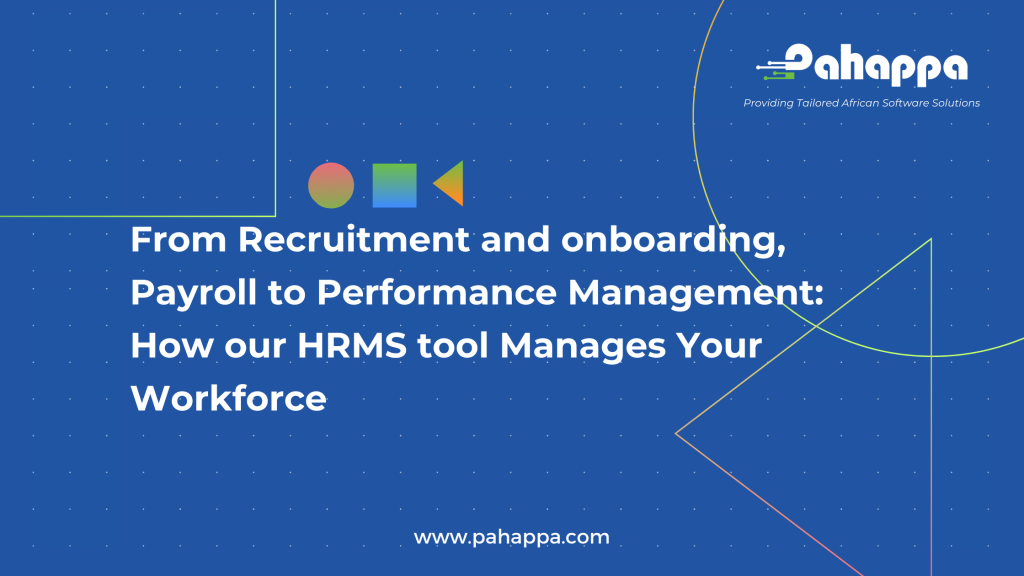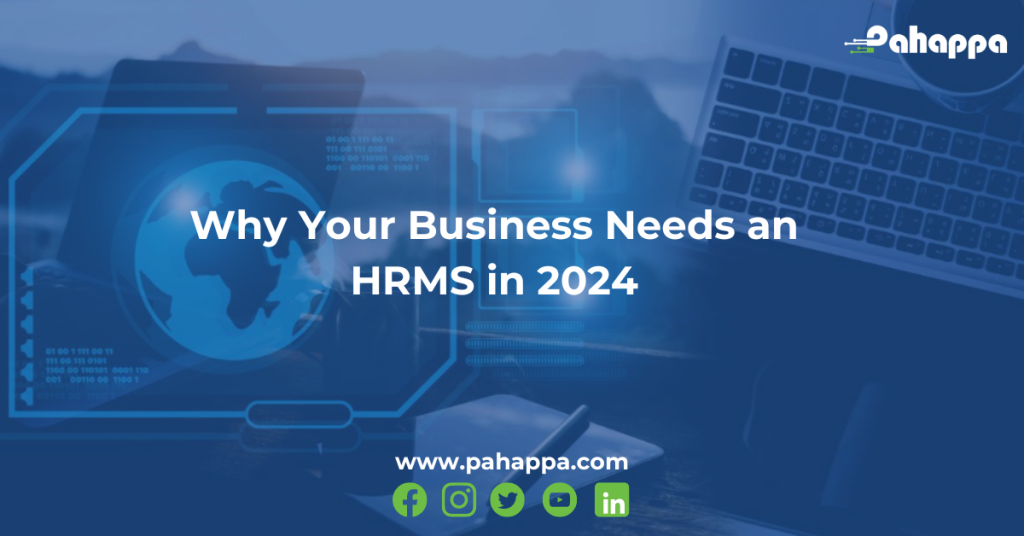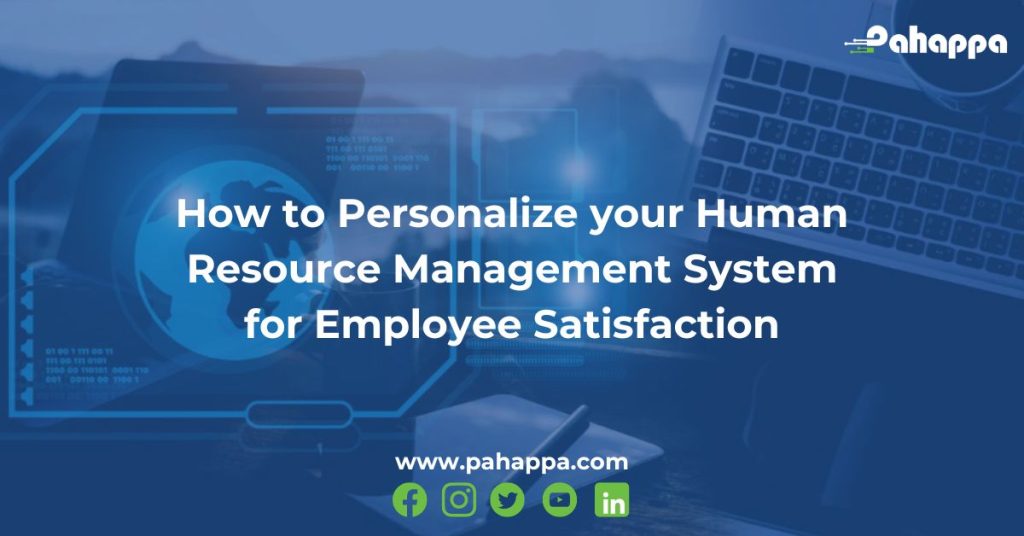Human Resource Management Systems are becoming more enviable in Uganda. Many companies are adopting to automate their HR processes. This automation benefits the employee and employer and increases transparency between both parties. It also helps to increase productivity because of the monitoring of Key Performance Indicators (KPIs) between departments and individuals. If you are thinking of getting an HR system for your business, here are some key modules to consider having and how they can benefit your company:
Key Components of an HR System:
- Employee Information Management:
- Centralized database for employee records.
- Personal details, employment history, and other relevant information.
- Payroll Processing:
- Automated payroll calculations.
- Tax calculations and statutory deductions compliant with Ugandan regulations.
- Time and Attendance Tracking:
- Systems for tracking employee attendance and working hours.
- Integration with biometric or card-based systems for accurate timekeeping.
- Leave Management:
- Automated leave request and approval processes.
- Real-time visibility into available leave balances.
- Recruitment and Applicant Tracking:
- Tools for posting job vacancies.
- Applicant tracking system for managing the recruitment process.
- Performance Management:
- Goal setting, performance appraisal, and feedback mechanisms.
- Tools for employee development and career planning.
- Training and Development:
- Tracking employee training and certifications.
- Identifying skill gaps and planning development programs.
- Employee Self-Service (ESS) Portals:
- Empowering employees to update personal information.
- Access to pay stubs, leave balances, and other relevant data.
- Compliance and Reporting:
- Ensuring adherence to labour laws and regulations in Uganda.
- Generating reports for HR analytics and decision-making.
- Integration with Other Systems:
- Seamless integration with other business systems, such as finance and project management.
Considerations for HR Systems in Uganda:
- Legal Compliance:
- Ensure the HR system complies with Ugandan labour laws and data protection regulations.
- Cultural Sensitivity:
- Consider cultural nuances in the design and implementation of HR processes and systems.
- User Training:
- Provide comprehensive training to HR staff and end-users to maximize the system’s effectiveness.
- Scalability:
- Select a system that can scale with the organization’s growth.
- Security:
- Implement robust security measures to protect sensitive employee data.
- Vendor Support:
- Choose a reputable HR system provider that offers ongoing support and updates.
- Customization:
- Consider the need for customization based on specific organizational requirements.
- Cost-Benefit Analysis:
- Evaluate the overall cost of implementing and maintaining the HR system against the benefits it brings to the organization.
Embracing innovation in Human Resources (HR) through the implementation of custom Human Resource Management System (HRMS) solutions can significantly enhance the efficiency and effectiveness of HR processes in Uganda. As technology evolves, HR departments can leverage customized HRMS solutions to streamline operations, improve employee experiences, and contribute to organizational success. Here are some key aspects to consider for the future of Ugandan HR:
- Automation of Routine Tasks: Custom HRMS solutions can automate repetitive and time-consuming HR tasks such as payroll processing, attendance tracking, and leave management. This not only reduces the administrative burden on HR professionals but also minimizes errors and ensures compliance with relevant regulations.
- Talent Acquisition and Management: Implementing innovative HRMS tools can revolutionize the recruitment and talent management processes. Custom solutions can include features like AI-driven resume screening, predictive analytics for identifying high-potential employees, and onboarding modules that enhance the overall candidate and employee experience.
- Employee Self-Service Portals: Provide employees with self-service portals within the HRMS, allowing them to access and update their personal information, submit leave requests, view pay stubs, and participate in training programs. This empowers employees and reduces the workload on HR staff.
- Data Analytics and Reporting: Custom HRMS solutions can incorporate robust analytics tools, enabling HR professionals to derive insights from workforce data. This data-driven approach can inform strategic decision-making, workforce planning, and talent development initiatives.
- Mobile Accessibility: Ensure that the HRMS solution is mobile-friendly, allowing employees and HR personnel to access information and perform tasks on the go. Mobile accessibility is crucial in today’s dynamic work environment and can improve overall efficiency and responsiveness.
- Compliance and Security: Custom HRMS solutions should prioritize compliance with local labour laws and data protection regulations. Additionally, robust security measures should be implemented to safeguard sensitive employee information, ensuring confidentiality and data integrity.
- Integration with Other Systems: Seamless integration with other business systems (such as finance, project management, and communication tools) is essential for a holistic organizational approach. This integration enhances cross-departmental collaboration and ensures data consistency.
- Continuous Training and Support: HR professionals should be provided with training and support to use and adapt to the new HRMS solution effectively. This ensures that the system is utilized to its full potential, maximizing the benefits for the organization.
- Scalability: Design the HRMS solution to be scalable, allowing it to grow with the organization. This is particularly important in a dynamic business environment where workforce size and requirements may change.
- User Feedback and Iterative Improvements: Gather feedback from HR users and employees regularly to identify areas for improvement. An iterative approach to system updates ensures that the HRMS solution remains aligned with the evolving needs of the organization.
By embracing innovation and implementing custom HRMS solutions, Ugandan HR can enhance operational efficiency, foster employee engagement, and contribute to the overall success of organizations in the country. HR leaders need to stay informed about emerging technologies and industry best practices to adapt their HRMS solutions accordingly. To learn more about HRMIS and how it benefits your company or organisation, click here.




